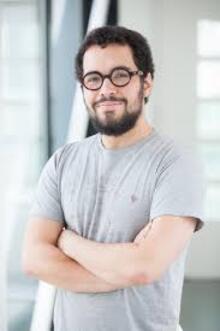Report on first Junior Day 2019 by Jonas Helsen.

On Friday the 13th of December, 2019 the Quantum Software Consortium held its first Junior Day. The idea was to create a get-together for all young quantum information and computation minded researchers in the Netherlands.
A conference of sorts, but one where anyone that smelled even remotely of tenure was politely not invited. This had the advantage of creating an open space for conversations that are not usually center stage at a conference (more on that later) but also the disadvantage of making the pool of potential speakers rather smaller. As a consequence of this I had to switch up my normal beginning-of-conference ritual of sipping coffee while battling a lack of sleep, for nervously checking and rechecking my slides and audiovisual equipment as the room gradually filled up in front of me. I want to take the opportunity here to thank the organisers for putting their faith in me as an opening speaker! I hope my discussion of Google’s “supremacy” experiment was somewhat entertaining.
After my opening act Christian Majenz gave an excellent talk on Wiesner’s quantum money scheme: a very beautiful, and initially unrecognised illustration of the power of quantum mechanical reasoning. Chris also put my presentation to shame by going old-school and giving his talk on a whiteboard specially rolled in for this purpose.
With the plenary talks out of the way, and with an excellent lunch having loosened our tongues, the day continued with a workshop by Ot van Daalen and Joran van Apeldoorn on the ethical and societal implications of quantum computing. I think this is where the format of the Junior day really shined and I want to acknowledge Ot and Joran for doing an excellent job moderating an occasionally rowdy group of young scientists. The workshop also opened my eyes to the need of having conversations about the field beyond the mere technical work and to engage with these questions on a more than superficial level. To all the conference organisers out there (Sander Gribling and Joran van Apeldoorn), do definitely consider including one of these workshops in your program. They are very enlightening and also quite fun.
Next on the list was a series of ‘lighting talks’ by students and post-docs from all corners of the country. These were very entertaining 15 minute short talks on a specific topic, or dealing with a particular open question or problem. They are to numerous for a detailed discussion but suffice it to say that I walked away from this session with a better understanding of the many different aspects of quantum computing research being pursued in the Netherlands.
Finally, after a long and intellectually exhausting day, we finished up with the most important part of any self respecting conference, pizza and beer!
Jonas Helsen
